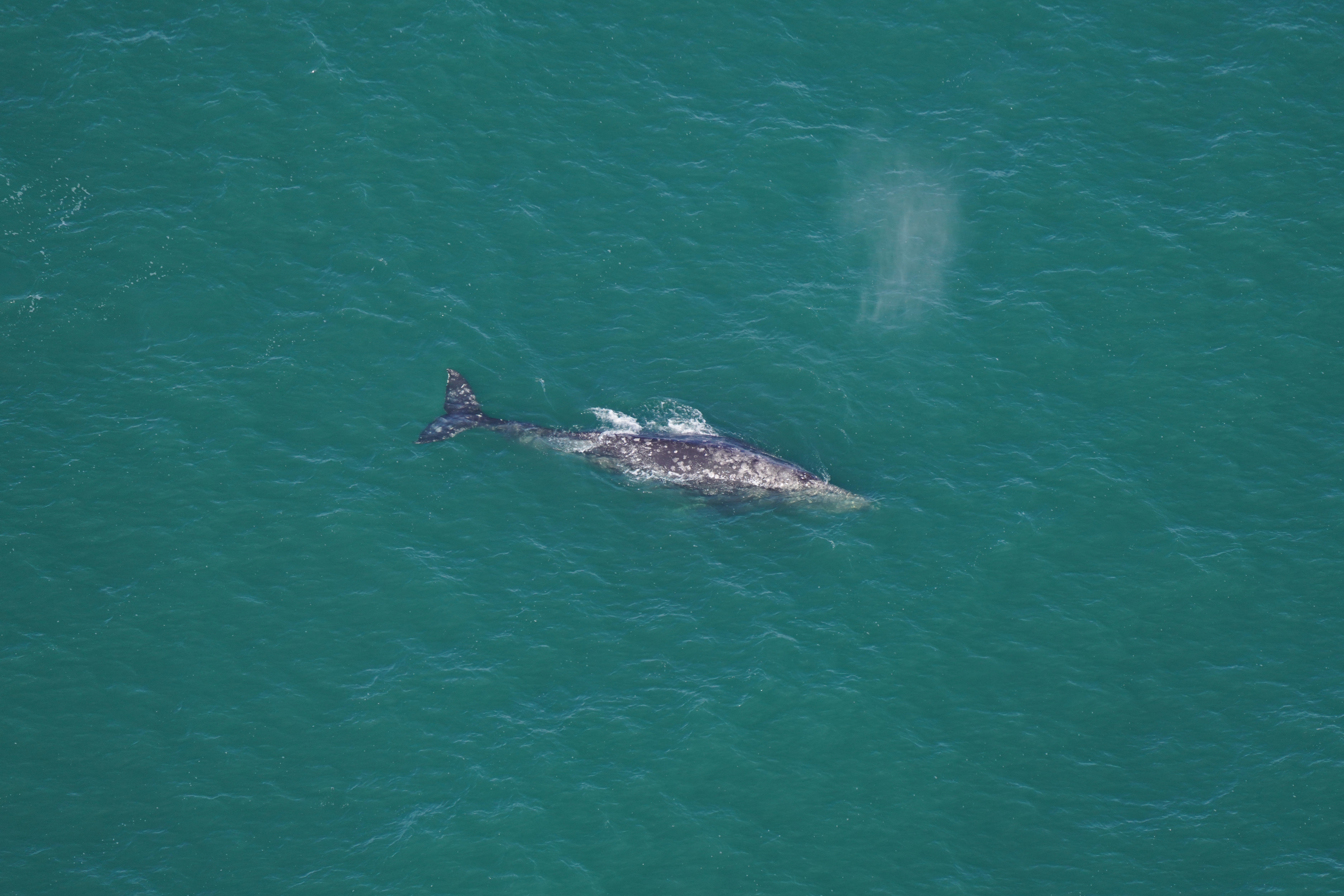Rare grey whale thought to be extinct in Atlantic for 200 years is spotted off Nantucket
Researchers believe climate change has opened up a route for the whales usually seen in the Pacific

A whale species, which has been considered extinct in the Atlantic Ocean for 200 years, has been spotted off the New England coast in what experts have described as an “incredibly” rare event.
The grey whale was spotted on 1 March by New England Aquarium scientists as they flew around 30 miles south of Nantucket in Maine.
The survey plane circled for around 45 minutes, with researchers taking photos as the whale repeatedly dove and resurfaced, apparently feeding.
“I didn’t want to say out loud what it was, because it seemed crazy,” Orla O’Brien, an associate research scientist in the Anderson Cabot Center for Ocean Life at the New England Aquarium, said in a press release.
Ms O’Brien showed the images to fellow passenger Kate Laemmle, a research technician.
“My brain was trying to process what I was seeing, because this animal was something that should not really exist in these waters,” Ms Laemmle said. “We were laughing because of how wild and exciting this was—to see an animal that disappeared from the Atlantic hundreds of years ago!”
While grey whales are frequently seen on the other side of the United States, in the North Pacific Ocean, they had disappeared from the Atlantic by the 18th century.
That changed around 15 years ago, when the mottled grey and white whales started to be spotted in both the Atlantic and the Mediterranean Sea.
The last known sighting was off the Florida coast in December and scientists believe the whale seen further north last week was the same whale.
Scientists believe the change has been driven by climate change.
New England Aquarium explained that the Northwest Passage, which connects the Atlantic and Pacific through the Arctic Ocean in Canada, has regularly been ice-free in the summertime in recent years.
The lack of ice has given the whales the space to pass through – something that would not have been possible over the past 200 years.
The National Oceanic And Atmospheric Administration Fisheries says the grey whale can weigh up to 90,000 pounds and grow to around 49 feet in length.
“This sighting highlights how important each survey is. While we expect to see humpback, right, and fin whales, the ocean is a dynamic ecosystem, and you never know what you’ll find,” Ms O’Brien added.
“These sightings of grey whales in the Atlantic serve as a reminder of how quickly marine species respond to climate change, given the chance.”
Subscribe to Independent Premium to bookmark this article
Want to bookmark your favourite articles and stories to read or reference later? Start your Independent Premium subscription today.

Join our commenting forum
Join thought-provoking conversations, follow other Independent readers and see their replies